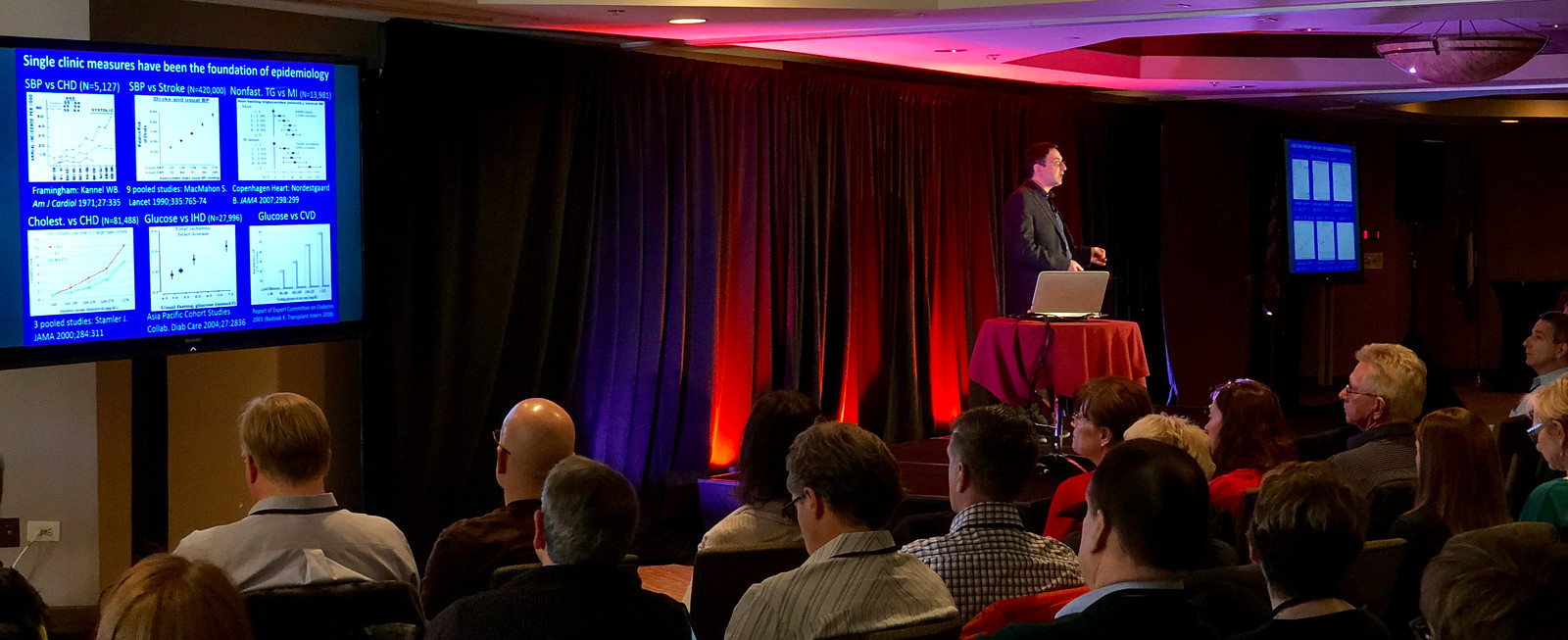I actually thought this was the more significant of the two talks that Andrew Mente, PhD (@andrewmente) gave at Low Carb Breckenridge (#lcb18) – The other one on saturated fat (see: Just Watched (again): Andrew Mente, PhD – “Current advice to limit total fat to less than 30%E and saturated fat to less than 10%E are not supported by this global study”).
Fat and saturated fat has been discussed a lot. Salt has not been as much.
As it says in my tweet, I’m a fan of the PURE study (you can read what I wrote about it in these posts), even though it’s an epidemiological analysis, because of its size and rigor. As you can see from the talk above, there’s an important story that PURE adds to, and the story is told very nicely, if you watch.
In the case of salt:
- There appears to be a J-cuve phenomena, meaning that at too low of salt intakes, death rates go up
- Most of the world has not been able to get to the recommended sodium intake level
- The level of sodium intake that the world is at (3-6 grams/day) is the optimal level
- Even though the PURE study verifies that increased salt intake raises blood pressure, actual mortality does not go up until about 6 grams of salt a day in people that have hypertension
- For people who do not have hypertension, increasing salt beyond that level does not increase mortality, e.g. there’s no reason to practice salt restriction, and in fact, restricting too far increases the death rate.
For another, similar/complementary point of view, this blog post from Stephen Phinney, MD, PhD: Sodium, Nutritional Ketosis, and Adrenal Function – Blog | Virta Health
#LCB18 #LowCarbBreck @andrewmente here from the PURE study 😍 on sodium and CVD and several other talks coming up. pic.twitter.com/d8NRtrwkiN
— Ted Eytan, MD, MS, MPH (@tedeytan) March 2, 2018
See what you think. Data over dogma.

3 Comments
RT @tedeytan: Post: Just watched (Again): @andrewmente: rethinking (and exploding myths about) Dietary Sodium Consumption, CVD and Mortalit…
RT @tedeytan: Post: Just watched (Again): @andrewmente: rethinking (and exploding myths about) Dietary Sodium Consumption, CVD and Mortalit…
RT @tedeytan: Post: Just watched (Again): @andrewmente: rethinking (and exploding myths about) Dietary Sodium Consumption, CVD and Mortalit…